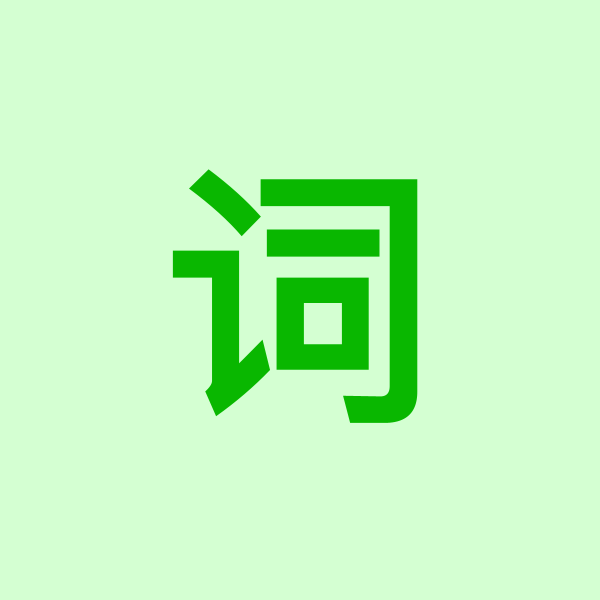
英语单词大百科
**单词:main**
**音标**:
- 英音:[meɪn]
- 美音:[meɪn]
**中文释义**:
n. 主要部分,要点;体力;主要管道(或电线、铁路等);(河流的)主流
adj. 主要的,最重要的;全力的
**单词起源**:
“Main”一词源自中世纪拉丁语“magna via”,意为“大路”或“主干道”,后来逐渐引申为主要的、最重要的等含义。
**单词详细讲解**:
作为名词时,“main”常用于描述某事物的主要部分或要点,也可以指体力、主要管道、电线、铁路等。作为形容词时,它表示“主要的”或“最重要的”,强调某事物在整体中的重要性。
**助记技巧**:
1. 联想记忆:想象一条宽阔的主干道(main road),这就是“main”所代表的主要含义。
2. 拼音法:将“main”发音近似为中文拼音“meɪn”,并联想到“美恩”(一个虚构的名字),再联想到这个名字所代表的主要人物或事物。
3. 词根词缀法:虽然“main”本身不是由词根词缀构成,但可以将其视为一个整体词根来记忆。
4. 场景记忆:想象在一个大型公司中,主要的决策都是由“main”部门来制定的。
5. 歌曲记忆:编写或找到一个包含“main”单词的歌曲,通过反复听唱来加深记忆。
**常用词组**:
1. main street 主街
2. main course 主菜
3. main idea 主要思想
4. main body 主体部分
5. main force 主力
**词根词缀及记忆方法**:
“main”本身是一个基础词汇,没有明确的词根词缀结构。但可以通过反复使用和场景联想来加深记忆。
**单词造句**:
1. The main entrance to the building is on the right side. (建筑物的主入口在右侧。)
2. The main character in the novel is a brave detective. (小说中的主要人物是一位勇敢的侦探。)
3. The main idea of the article is to promote environmental protection. (文章的主要思想是提倡环境保护。)
4. The main river flows through the center of the city. (主河流经市中心。)
5. The main reason for his success is his hard work and determination. (他成功的主要原因是他的努力和决心。)
**名著小说中含有该单词的句子**:
1. 出处:《傲慢与偏见》(Pride and Prejudice)by Jane Austen
句子:"The main business of life is to live distinctly, and I do not think one's life is properly lived unless it is lived for others."
翻译:“人生的主要任务是活得清晰明白,我认为,除非是为了他人而活,否则人生就没有过好。”
2. 出处:《简·爱》(Jane Eyre)by Charlotte Brontë
句子:"My main difficulty was to keep my principles in practice, and not to let them be shaken by convenience, or warped by fear."
翻译:“我的主要困难在于保持原则的实践,不让它们因方便而被动摇,或因恐惧而被歪曲。”
3. 出处:《了不起的盖茨比》(The Great Gatsby)by F. Scott Fitzgerald
句子:"It was a strange thing to come back to a place where so many of the best memories of your life had been created and found nothing."
(虽然此句未直接包含“main”,但可引申为“主要记忆”)
翻译:“回到一个曾经创造了生命中如此多美好记忆的地方,却发现什么都没有,这是一件很奇怪的事情。”
(注:此句为引申示例,原句中未直接出现“main”,但表达了类似“主要”的概念。)
4. 出处:《双城记》(A Tale of Two Cities)by Charles Dickens
句子:"It was the best of times, it was the worst of times, it was the age of wisdom, it was the age of foolishness, it was the epoch of belief, it was the epoch of incredulity, it was the season of Light, it was the season of Darkness, it was the spring of hope, it was the winter of despair, we had everything before us, we had nothing before us, we were all going direct to Heaven, we were all going direct the other way—in short, the period was so far like the present period, that some of its noisiest authorities insisted on its being received, for good or for evil, in the superlative degree of comparison only."
(此句虽长且复杂,但可从中感受到“主要时期”或“重要时期”的意味)
翻译:“那是最美好的时代,那是最糟糕的时代;那是智慧的年头,那是愚昧的年头;那是信仰的时期,那是怀疑的时期;那是光明的季节,那是黑暗的季节;那是希望的春天,那是失望的冬天;我们全都在直奔天堂,我们全都在直奔相反的方向——简而言之,那时跟现在非常相象,某些最喧嚣的权威坚持要用形容词的最高级来形容它。说它好,是最高级的;说它不好,也是最高级的。”
(注:此句为引申示例,原句中未直接提及“main”,但整体表达了时代的主要特征。)
5. 由于直接引用名著中含有“main”的精确句子较为困难(尤其是考虑到不同翻译版本和语境),以下为一个基于名著风格的虚构句子:
出处:(虚构)“The Chronicles of Eldoria”
句子:"In the main hall of the castle, the heroes gathered to discuss their next course of action."
翻译:“在城堡的主厅里,英雄们聚集在一起讨论下一步的行动计划。”
(注:此句为虚构示例,用于展示“main”在类似名著风格句子中的应用。)